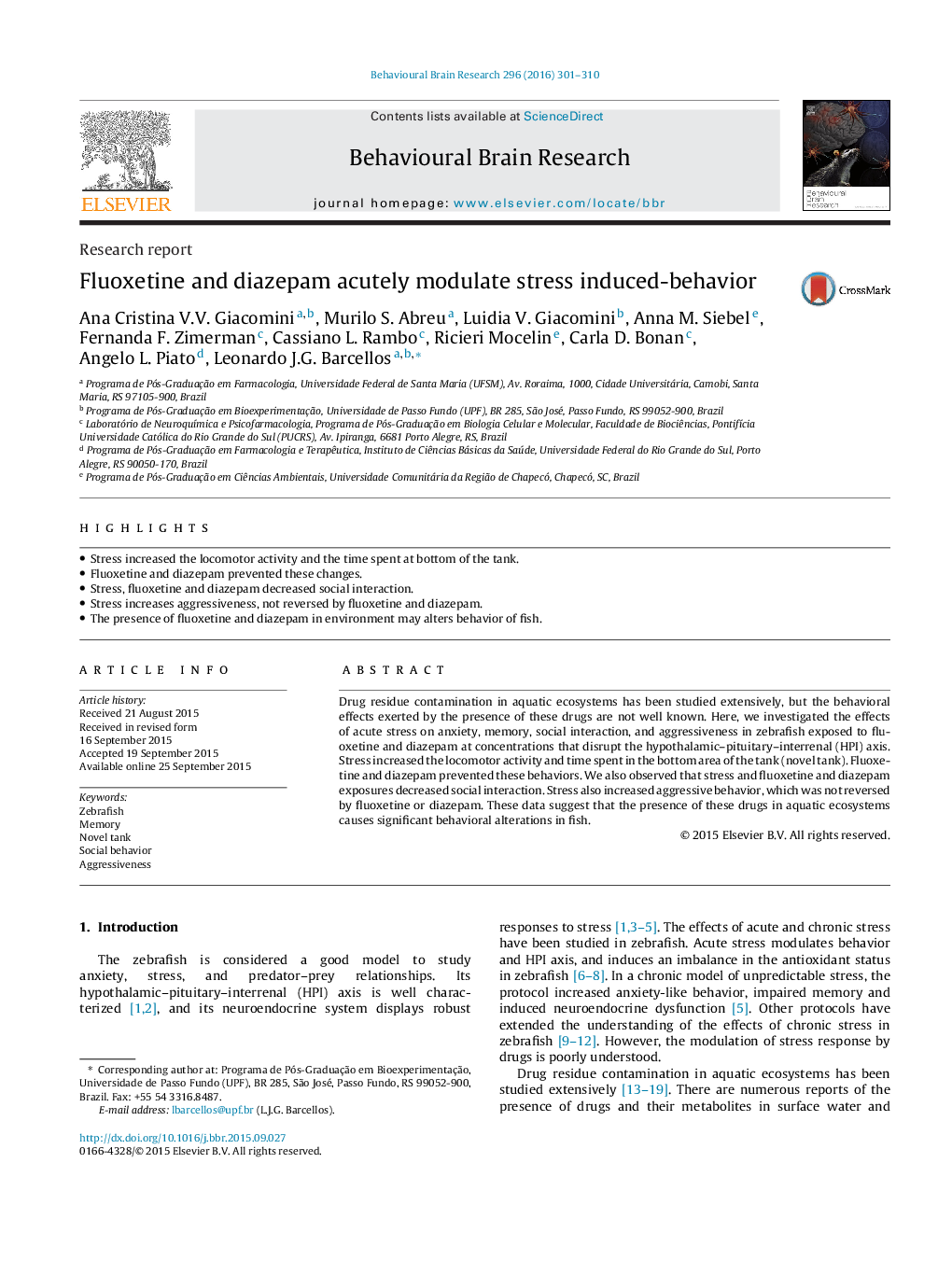| Article ID | Journal | Published Year | Pages | File Type |
|---|---|---|---|---|
| 4312341 | Behavioural Brain Research | 2016 | 10 Pages |
•Stress increased the locomotor activity and the time spent at bottom of the tank.•Fluoxetine and diazepam prevented these changes.•Stress, fluoxetine and diazepam decreased social interaction.•Stress increases aggressiveness, not reversed by fluoxetine and diazepam.•The presence of fluoxetine and diazepam in environment may alters behavior of fish.
Drug residue contamination in aquatic ecosystems has been studied extensively, but the behavioral effects exerted by the presence of these drugs are not well known. Here, we investigated the effects of acute stress on anxiety, memory, social interaction, and aggressiveness in zebrafish exposed to fluoxetine and diazepam at concentrations that disrupt the hypothalamic–pituitary–interrenal (HPI) axis. Stress increased the locomotor activity and time spent in the bottom area of the tank (novel tank). Fluoxetine and diazepam prevented these behaviors. We also observed that stress and fluoxetine and diazepam exposures decreased social interaction. Stress also increased aggressive behavior, which was not reversed by fluoxetine or diazepam. These data suggest that the presence of these drugs in aquatic ecosystems causes significant behavioral alterations in fish.
